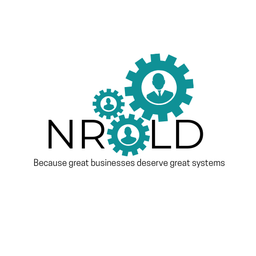Reward-Based vs. Equity Crowdfunding
Crowdfunding is one of the most exciting ways for entrepreneurs and creators to raise money. It lets you skip the traditional gatekeepers like banks and venture capitalists. Instead, you can get funding directly from a community of people who believe in your vision.

This guide will break down the differences between reward-based and equity crowdfunding. It will give you a clear, step-by-step framework to help you decide which model is the perfect fit for your project or business.
Step 1: Understand the Basics: What Are You Offering?
The main difference between the two models is what you give your supporters in exchange for their money.
Reward-Based Crowdfunding: You're Selling a Product or Experience
This is the most well-known type of crowdfunding, made popular by platforms like Kickstarter and Indiegogo. The concept is simple: backers give you money, and in return, you give them a "reward." Most of the time, that reward is the very product you are raising money to create.
- Think of it as a pre-order system. Your backers are your first customers. They are excited about your idea, and they want to be the first to get it.
- Who is it for? Creators, inventors, artists, filmmakers, game designers, and anyone with a tangible product.
- Key Feature: You keep 100% ownership of your company. Your only obligation is to deliver the promised rewards to your backers.
Example:
A team of designers invents a new, durable, travel-friendly coffee press. They need $20,000 for the first manufacturing run. They launch a Kickstarter campaign. A backer who pledges $40 gets one of the first coffee presses once they are made. That backer is a customer, not an owner.
Equity Crowdfunding: You're Selling a Piece of Your Company
This model is more like a mini-IPO (Initial Public Offering). It is hosted on platforms like WeFunder, StartEngine, and Republic. In equity crowdfunding, your supporters are not customers; they are investors. They give you money in exchange for a small piece of ownership in your company (equity, or shares).
- Think of it like Shark Tank, but for everyone. Instead of one big investor, you can have hundreds or thousands of small investors.
- Who is it for? High-growth potential startups, tech companies, and businesses that are built to scale and generate a large financial return.
- Key Feature: You give away a portion of your company's ownership. Your investors hope that the company will grow in value, making their shares worth more in the future.
Example:
A fintech startup creates a new app to help students manage their finances. They need $500,000 to hire more developers and expand their marketing. They launch an equity crowdfunding campaign, offering 10% of their company. A person who invests $100 now owns a tiny slice of that startup. They get no physical product; their reward is the potential for their investment to grow.
Step 2: Evaluate Your Business and Your Goals
Now that you understand the basics, you need to look at your own situation. Ask yourself these three key questions to find the right path.
Question 1: Are you building a project or a company?
- A project has a clear beginning and end. This includes things like making a film, writing a book, recording an album, or producing one batch of a cool gadget. The goal is to create a specific thing.
- A company is a long-term venture designed to grow, scale, and generate ongoing profits. The goal is to build a sustainable business.
Guidance:
- If you have a project, reward-based crowdfunding is almost always the right answer.
- If you have a company, you could use either. But if your company has high-growth potential, equity crowdfunding becomes a very strong option.
Question 2: How much money do you need to raise?
- Reward-based campaigns are great for raising amounts from a few thousand dollars up to around a few hundred thousand. The world record is much higher, but the sweet spot for most creators is typically under $100,000. This amount is good for covering tooling, initial inventory, or creative production costs.
- Equity campaigns are built for larger funding rounds. It is common to see companies raise anywhere from $50,000 to the legal maximum of $5 million per year. This larger amount is needed for things like hiring a team, significant R&D, or major marketing pushes.
Guidance:
- For smaller, project-based funding needs, choose reward-based.
- For larger, growth-oriented capital needs, choose equity.
Question 3: Do you want to give up ownership and control?
This is the most important question.
- With reward-based crowdfunding, you keep full control. You have no shareholders to answer to. Your main responsibility is to your customers (your backers).
- With equity crowdfunding, you are selling ownership. This means you will have shareholders. You are giving up a piece of your company and taking on a legal responsibility to act in your investors' best interests. You will need to provide them with regular updates and financial reports.
Guidance:
- If you want to maintain 100% control, choose reward-based.
- If you are willing to give up equity in exchange for a larger investment and a community of investor-advocates, choose equity.
Step 3: Compare the Pros and Cons in a Table
To make it even clearer, let's look at a side-by-side comparison.
Conclusion: Making Your Final Decision
The choice between reward-based and equity crowdfunding comes down to the fundamental nature of your venture.
Choose Reward-Based Crowdfunding if:
- You are funding a specific, creative project (a film, game, book).
- You are creating a physical product and want to test the market and get pre-orders.
- You want to keep 100% ownership and control of your brand.
- You need funding for a first production run, not to scale a whole company.
Choose Equity Crowdfunding if:
- You are building a business designed for high growth.
- You need a significant amount of capital to hire staff, develop technology, or scale operations.
- You have a clear plan to provide a financial return for your investors.
- You are comfortable with sharing ownership and the legal responsibilities that come with having shareholders.
By carefully thinking through your project, your goals, and your comfort level with giving up ownership, you can confidently choose the right crowdfunding path to bring your vision to life.

This content is AI-assisted and reviewed for accuracy, but errors may occur. Always consult a legal/financial professional before making business decisions. nrold.com is not liable for any actions taken based on this information.


